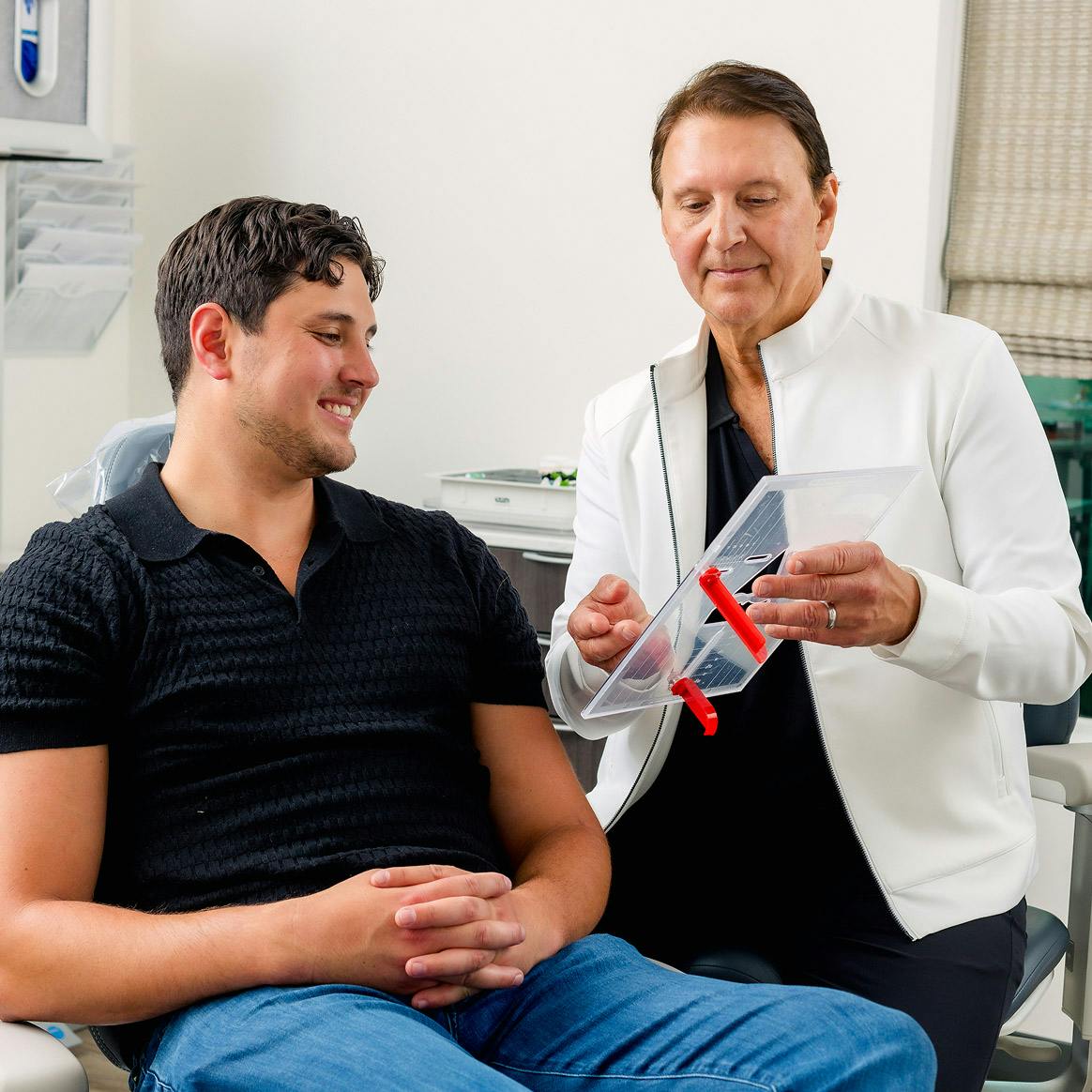What Causes Bone Loss in the Jaw?
Jaw bone loss can stem from many causes. While the most common causes are tooth loss and gum disease, a range of other issues can lead to tissue loss in your jaw. For example, smoking can affect the density of bone in all areas of the body, including the jaw.
Missing Teeth
Your teeth help maintain the natural height and thickness of your jawbone. The section of bone surrounding the roots of your teeth is known as the alveolar bone. Throughout your daily life, the roots stimulate this section of the bone, indicating to the brain that resources are necessary in a particular area of the jaw. Based on this stimulation, the body sends calcium and other nutrients to the jaw, encouraging continued bone growth.
When a tooth is extracted or lost due to trauma, there are no longer roots to stimulate the alveolar bone. Over time, the body stops sending resources to the area where the tooth was, and that section of the jaw will slowly deteriorate. The longer missing teeth are left untreated, the more tissue is lost until the bone beneath neighboring teeth is affected, which can cause further tooth loss.
Dentures and Bridgework
Traditional methods of replacing lost teeth include dentures and dental bridges. These restorations can replace missing teeth to create a more natural smile and improve your ability to eat and speak naturally. However, dentures and bridges do not protect your jaw against bone loss. Bridges consist of artificial teeth supported by dental crowns. Since the crowns are placed over natural teeth, the jawbone beneath these teeth remains intact. Unfortunately, the areas of the jaw where teeth were lost will continue to lose tissue.
Dentures, on the other hand, can actually exacerbate jawbone loss. Traditional full dentures rest directly on the gum tissues without support from teeth or dental implants. They do not provide sufficient stimulation to prevent tissue deterioration. In addition, dentures tend to shift against the gum tissue and rub. Over time, this process can speed up the loss of tissue in the jaw.
Periodontal Disease
Chronic infection in the gum tissue, known as periodontal disease, affects tooth-supporting structures, such as the alveolar bone and other ligaments. In advanced stages, the bacteria associated with periodontal disease begin to eat away at supporting gum and bone tissue, causing tooth loss and bone loss in the jaw.
Since many of the symptoms of gum disease are painless, this condition often goes unnoticed for long periods of time. When periodontal disease is left untreated, it can cause serious damage to the strength and stability of your jaw.
Trauma
Injury to the jaw and trauma to teeth are also associated with bone loss. If a tooth is knocked out or broken, bone stimulation to the jaw stops, leading to tissue deterioration. In addition, jaw fractures or a history of trauma affecting certain teeth can cause tissue to die and lead to bone loss years after the initial injury.
Losing tissue in your jawbone can greatly affect your appearance as well as your oral health.
Medical Conditions
Certain medical conditions increase your likelihood of jawbone atrophy. Osteoporosis, a condition that causes the bones to become weak and brittle, can affect the jaw and lead to deterioration of the tissue. Paget’s disease of bone (PDB), a disease that disrupts the natural replacement of old bone tissue with new, and osteomyelitis, a type of inflammation of the bone caused by infection, can lead to dental bone loss. Tumors are another common cause of jawbone deterioration.
Misalignment
Abnormal physical forces and other misalignment issues can affect the ability of your teeth to grind and chew properly. In these situations, lack of opposing force limits the natural stimulation of the jaw leading to bone loss. Issues that can create abnormal force include problems with the temporomandibular joint (TMJ), normal wear and tear to the surface of teeth, and crooked teeth.
Additional Causes
Infections, birth defects, and smoking are other causes that can lead to bone loss in the jaw. Certain prescription drugs, such as bisphosphonates, also affect the density and volume of the jawbone.





